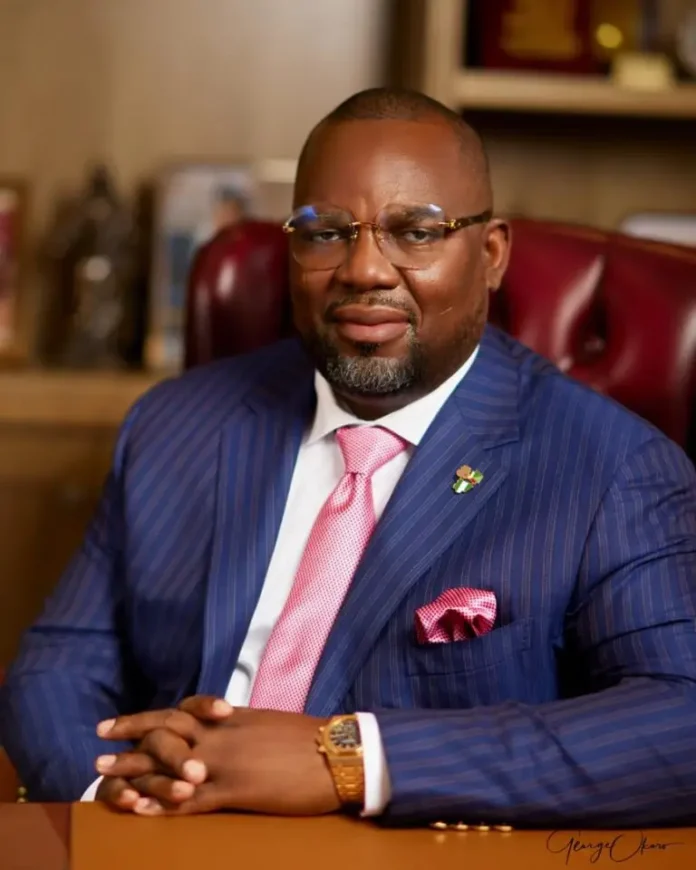Dr Julius Rone, Group Managing Director of UTM Offshore Ltd., has reaffirmed the company’s commitment to delivering the first Floating Liquefied Natural Gas (FLNG) project in Nigeria by 2029.
Rone said the landmark project would be achieved through strategic partnerships with some of the world’s leading engineering and energy firms, aimed at positioning Nigeria as a key player in global LNG supply.
He made this known in a statement issued on Wednesday in Lagos, following his participation at the recently concluded African Energy Week held in Cape Town, South Africa.
According to him, the offshore FLNG project, located in Akwa Ibom State, has recorded substantial progress.
This, he added was achieved through collaborations with international partners including Japan Gas Corporation (JGC), Technip Energies NV, and Kellogg, Brown & Root (KBR).
“One of the key decisions we got right from the outset was partnering with the best engineering firms in the world,” Rone said.
He revealed that the consortium leading the engineering work, Open Sea Technologies, is currently spearheading the development of the pioneering FLNG infrastructure in Nigeria.
Rone emphasised that securing a sustainable gas supply remains critical to achieving the project’s Final Investment Decision (FID).
“To move forward, we must ensure that all segments, upstream, midstream, and downstream, are aligned.
“The gas supply forms the backbone of the entire project,” he noted.
He explained that UTM had identified a suitable upstream asset operated under a joint venture between the Nigerian National Petroleum Company Limited (NNPC Ltd.) and SEPLAT Energy, with a 60-40 equity split.
“Interestingly, the gas from this asset, which is currently being re-injected, has now been classified as stranded gas, which makes it perfect for this project,” he said.
Rone said the project drew inspiration from successful electrostatic LNG models in Mozambique, Malaysia, and Kuwait, adding that the company had already achieved strong progress in midstream engineering capacity.
“In terms of midstream engineering capability, we are covered. What remains now is to finalise the financing aspect,” he said.
He disclosed that UTM Offshore was working closely with the African Export-Import Bank (Afreximbank), based in Cairo, which has pledged support for both the debt and equity components of the project.
“Afreximbank’s mandate is to promote intra-African trade and support indigenous African enterprises.
“Their involvement brings significant confidence, as they are aggregating funds from other banks to ensure the financial structure is robust,” Rone said.
He added that part of the company’s plan was to supply condensates domestically to strengthen Nigeria’s industrial base while exporting LNG to meet growing energy demand in Europe and Asia.
“Our project roadmap follows three major steps: securing the gas supply agreement, signing the sales agreement, and proceeding to financial closure with a final investment decision.
“We’re currently about 95 per cent done with the gas supply agreement and should sign it in a matter of weeks,” he disclosed.
Rone expressed appreciation to key stakeholders, including President Bola Tinubu, for their steadfast support and policy direction that continues to encourage private sector-led gas infrastructure investments.
He reaffirmed UTM Offshore’s commitment to operating with transparency, integrity, and sustainability while respecting host communities and protecting the environment in all its operations.
“Our focus remains on delivering this project in a way that transforms Nigeria’s gas landscape, creates jobs, and showcases the capability of indigenous companies to deliver world-class infrastructure,” Rone said




